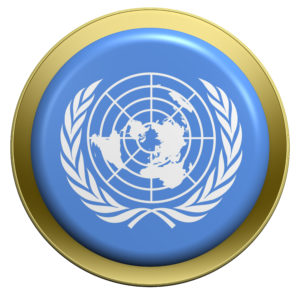
UN Secretary General Ban Ki Moon is to be replaced by Antonio Guterres
There have only been eight Secretary Generals of the United Nations so far, with each one coming from a country with virtually little power and presence on the world stage. The current UN Secretary General Ban Ki Moon was elected to the post in 2007 having previously served as foreign minister to the Republic of Korea. He is likely one of the most uncontroversial figures that have had the role and has had very little public presence. In an interview he gave to Al Jazeera he was questioned about his lack of leadership and action within his role. He responded by stating that he acts through delegation of duties and through his staff behind the scenes. As he approaches the end of his second term and role as UN Secretary General the man set to replace him Antonio Guterres is almost a polar opposite to Ban Ki Moon.
Career of Antonio Guterres
Antonio Guterres started his career as an assistant professor teaching electrical engineering before leaving his academic life to start a career in politics. In 1974 he joined the Socialist Party in Portugal and held positions including Head of Office of the Secretary of State for Industry, Deputy for Castelo Branco (a member of the Portugal Parliament) and leader of the parliamentary bench of the socialist party. He was also a founding member of the Portuguese Refugee Council in 1991. Four years later Guterres was appointed Prime Minister. Guterres became a popular prime minister known for his willingness to discuss and address issues from all members of society and provided strong economic growth to the country, which allowed him to reduce deficits and increase welfare. He began his prominence on the international stage when he campaigned for East Timor’s independence in 1999.
In 2005 Guterres was elected UN High Commissioner for Refugees. His role involved providing protection and assistance to over 50 million refugees around the world. Due to the increasing refugee crisis that was beginning to emerge, Guterres enacted extreme reforms to the UN Refugee Agency by making significant cuts to staff within the head office in Geneva, cutting down on administration cost and increasing the organisation’s field work and emergency response capabilities. Guterres was a very public figure within his role as High Commissioner. In 2007 he dedicated substantial amounts of his time to media interviews to drive awareness of the increasing refugee crisis occurring around the world with particular focus upon the Middle East, the Central African Republic, and the Republic of Congo. He was an extremely outspoken advocate for more humane approaches to be adopted by European countries towards the Mediterranean refugee crisis. He also strongly advocated for developed countries to assist in Syria’s refugee crisis by reliving the significant burdens that were placed upon Turkey and Jordan that played host to the majority of Syria’s refugees.
On January 1st 2017 Guterres will take his new role as UN Secretary General. The selection process and sheer number of candidates that were considered for this role was unprecedented. Considering refugees and migration is likely the key issue faced by international communities today the choice of Guterres will play an extremely significant part in how this crisis develops. His past leadership and expertise in this area was what likely made him successful in his bid for the position. His appointment will provide hope to many refugees and advocates within the sector that there will be a humane solution to the crisis. It demonstrates the importance that has been placed on the issue of refugees and shows that the international community has begun to realise this.
Vijhai Utheyan
BCrim&CJ (UNSW)




